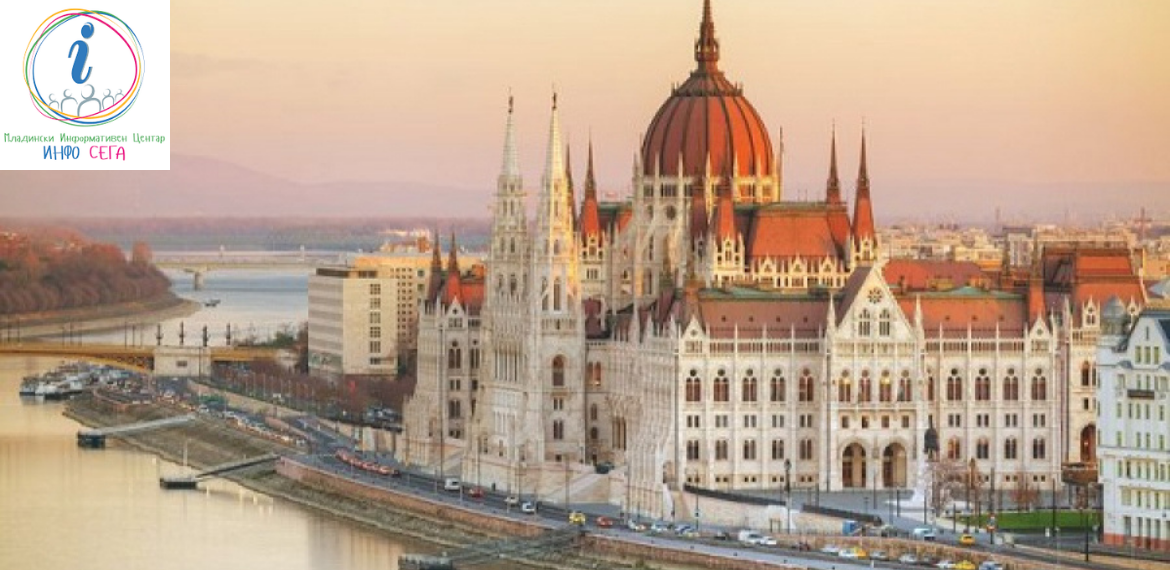
Hungary the world’s most beautiful nation with the biggest troubles in the EU
Hungary is a landlocked country in Central Europe. Its capital, Budapest, is bisected by the Danube River.
Its cityscape is studded with architectural landmarks from Buda’s medieval Castle Hill and grand neoclassical buildings along Pest’s Andrássy Avenue to the 19th-century Chain Bridge. Turkish and Roman influence on Hungarian culture includes the popularity of mineral spas, including at thermal Lake Hévíz.
The official language of the country is Hungarian; the currency of Hungaryis the Hungarian forint. The population of the country is around 9.8 – 9.9 million.
Hungary was once part of the Celtic world, then the Roman Empire. Following the fall of Rome, the Huns settled in the plains of Pannonia and gave their name to Hungary.
Founded in 897, Hungary is one of the oldest countries in Europe (before France and Germany became separate entities, and before the unification of Anglo-Saxon Kingdoms.)
Hungarian language is also known as Magyar and is the direct descendent of the language spoken by the Huns. It is not an Indo-European language and has only two related languages in Europe (Finnish and Estonian).
Inventions by Hungarians in Hungary include the noiseless match (by János Irinyi), Rubik’s cube (by Erno Rubik), and the krypton electric bulb (Imre Bródy).
Remember, earlier I’d mentioned the spa and the hot springs at the Hotel Gellért? Hungary has one of the most important thermal spring cultures in Europe. The country boasts no less than 1,500 spas, typically featuring Roman, Greek and Turkish architecture.
As of 2007, 13 Hungarians had received a Nobel Prize (this is more than Japan, China, India, Australia or Spain) in every category except peace.
Literacy of total population is 99%. Basic education lasts for eight years divided into two stages of four years each. Secondary education is provided in academic secondary schools (gimnázium) or vocational secondary schools (szakközépiskola).
Hungarian higher education has a dual system with colleges and universities. Some colleges are associated with universities and operate as college faculties within universities. A university can also offer college level courses. The duration of training at college level is minimum 3 years, maximum 4 years; the duration of education at university level is minimum 4 years, maximum 5 years (with the exception of medical universities where it is 6 years). According to the binary pattern, colleges and universities grant Főiskolai Oklevél (College-level Degree) and universities grant Egyetemi Oklevél (University-level Degree). Universities organize three-year PhD courses, specialized further education courses (with a normal duration of one to three years) and various continuous education courses.
And no post on Hungary is complete, without mention of its famously delicious and flavorful Gulyásleves (gulyás is herdsman, leves is soup in Hungarian); a Hungarian soup, made of beef, vegetables, ground paprika and other spices. It originates from a dish cooked by the cattlemen (gulyás also means herdsman) who tended their herds in the Great Hungarian Plain, known as the Alföld or Puszta in Hungarian. Egészségedre (enjoy)!
Hungary joined the European Union in 2004 and has been part of the Schengen Area since 2007. Hungary is a member of the United Nations, NATO, WTO, World Bank, the AIIB, the Council of Europe, the Visegrád Group and more. Well known for its rich cultural history, Hungary has contributed significantly to arts, music, literature, sports and science and technology. Hungary is the 11th most popular country as a tourist destination in Europe, attracting 14.3 million international tourists in 2015. It is home to the largest thermal water cave system and the second largest thermal lake in the world, the largest lake in Central Europe and the largest natural grasslands in Europe.
Hungarian girls are often mentioned, in the official world beauty rankings, as the most beautiful ladies in the entire world. Yikes!
As we know in the most recent weeks, there was a scandal in the European Parliament, about Hungarian - different minded policies in some areas, which the EU does not consider to be created with the regards towards the so called “common values” in the EU, like common practices or standards. The EP, after reviewing the Sargentini report, even threatened to propose the invocation of article 7 of the Lisbon Treaty, which opens path for sanctions against a member state and a temporary loss of EU Council voting rights. It is triggered when a member state violates European values and the rule of law. It was invoked for the first time last year against Hungary's ally Poland. However this types of votes could be vetoed, if presented for consideration (vote) in the EP, and Poland is very likely to veto such proposals, because of the similarity of some policies in both of the countries, and of course the close proximity of the two nations.
But in my country, Bulgaria, also with full membership in the EU, for example, the policies of the Hungarian government are very widely recognized and liked, and the people are able to relate to policies that address the population growth, migration, culture and education, as being one of the oldest nations and states in Europe, we share a lot of these values, and also have some common history. Today (19.09.2018) senior officials in the Bulgarian government called for a meeting , of the Council of Ministers, to discuss the situation with Hungary, and the official position of the Bulgarian government, that was reached, was also to support Hungary, if sanctions are proposed, and eventually also to take Hungary’s side on the stance that the EU should be a union of sovereign nations, states and/or countries, and the Union should not try to interfere in every area of policies, especially in the very traditional and important fields of culture or education, which were pivotal in order for our countries and nations to survive during the ages and are object of huge pride and high regards on the side of the peoples, of such traditionalist in some ways countries, as ours. Even if we talk about futuristic, political model, concepts as the United States of Europe, let’s not forget that in the USA, which would be the closest example for such Super-State, the different states still are allowed to develop their own normative decrees, different to a certain extent, from such in the other states. We don’t want to say here, that progress is not needed, or it is necessarily something bad, or following the good practices, or common market for goods, information and human resources - don’t get me wrong. But it all of it should be to a certain moral extend. We cannot forget our national identities, cultures, languages and totally erase and renovate our system of values - as nations, lived for thousands of years. Not even for the cause of united Europe, as great as it is. And united Europe is, and if it is accepting us as fully- fledged and equal partners in this Union, should not require such things from any of its members for that matter. United we stand, but as different people, different in religion, ethnicity, culture and customs, but United. Because let’s face it there is a social divide, religious divide, ethnic and racial division are also fact in Europe, and we are still facing the challenge to overcome all these differences, so let’s not create more, not before we’re done improving on and fixing the old contradictions and differences. Tolerance is a very good thing, but in politics, it should be a bilateral process. Same goes for the respect, on the personal level of existence. Not all of us would like eating cheese with the taste and appetite of somebody, who is French, or enjoy drinking beer, and having fun, singing and cheering as the Germans do. So we are different in some ways, it is what diversity is. This is what we should celebrate, remember, not sanction? So maybe Hungary’s policies for culture, education and migration are not everybody’s cup of tea, but is it correct to try to try to change the face of an entire nation, just to have the common standards set in place for everybody – arguably! I don’t think any of the above mentioned is possible in the first place; correct me if I’m wrong. Maybe even the stance of the Hungarian govt. is not an “immovable object”, with regards to all the issues, that have been raised in the EP, only time will tell. What is for sure now, is that we Bulgarians, with the government that represents us, for example, will support Hungary, in the latest contradictions, in the council of the EU and the EP.
So, no matter you are a boy or girl,young or old, and you want to see some of Europe’s best preserved architecture, you want to visit Budapest, the city of the thousand baths, enjoy the very old and rich Hungarian culture, or witness some of the most beautiful human beings in the entire world, especially the representatives of the “better half of humanity” - feel free to plan your visitation to the open and modern, but still somehow conservative and traditionalist, Hungary.
From me good luck “sok szerencsét” and take care “vigyázz magadra”.
Writing and summary by: Velin Nedkov

